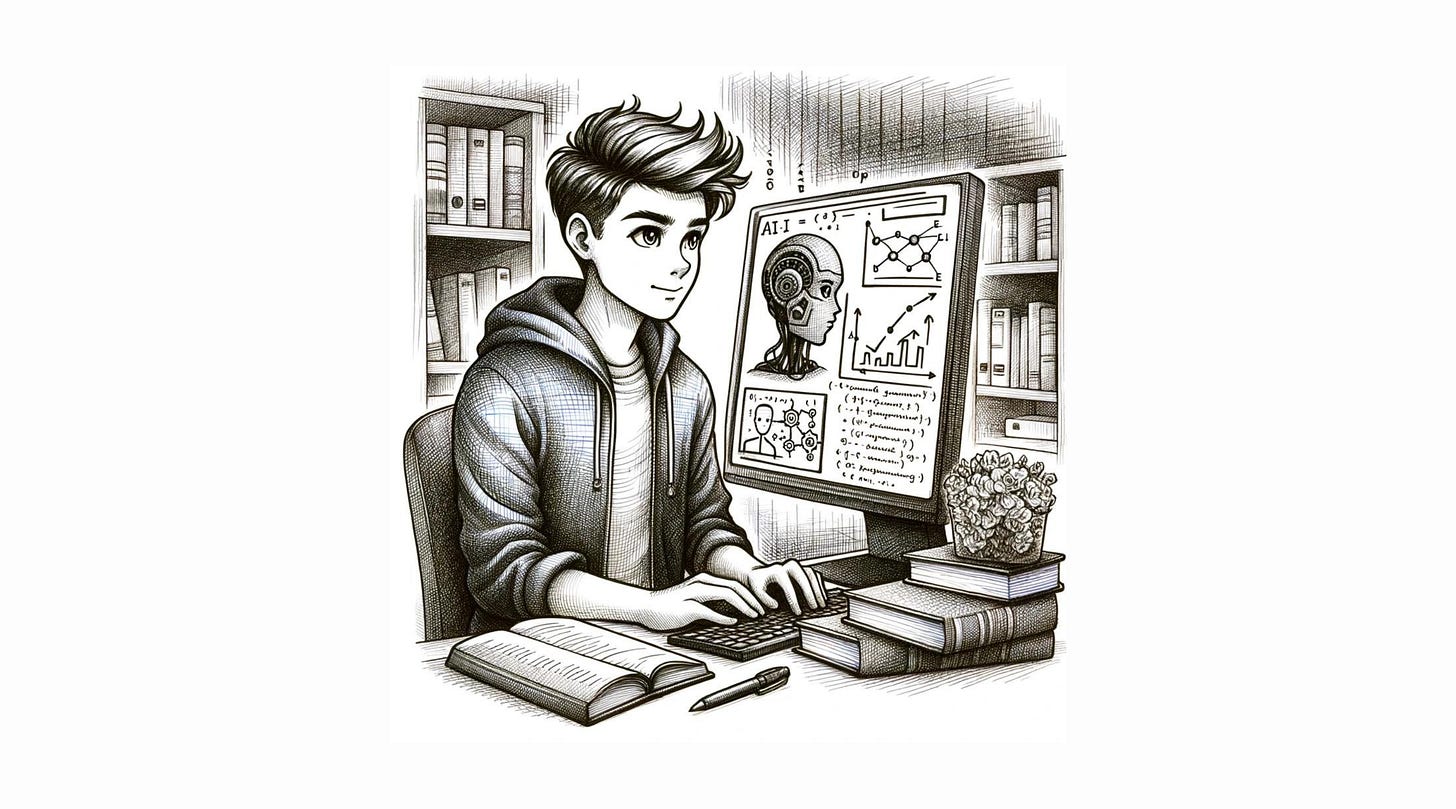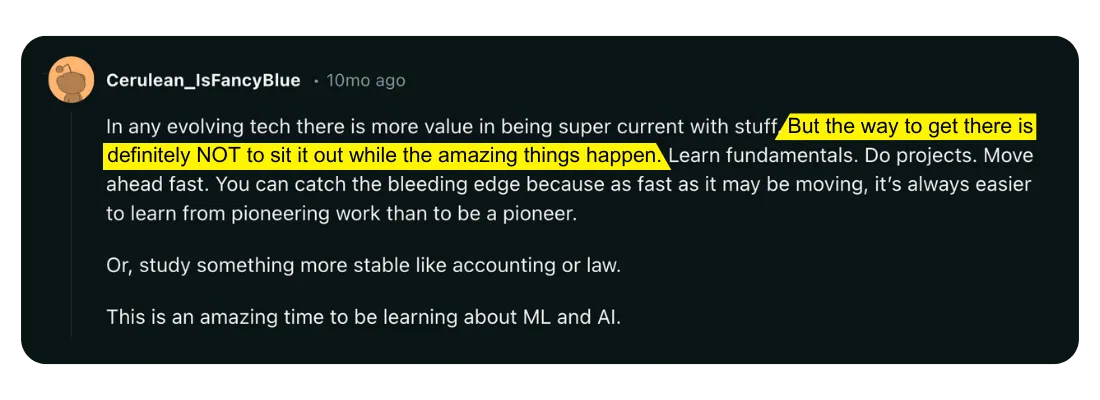How to Develop AI Skills Without Being a Developer
And what does it really mean to "learn AI"?
👋 Hi, welcome to Till’s Newsletter. Let’s learn about AI.
4 Min Read
Happy Thursday folks :) In today’s newsletter …
🤔 What does it mean to “learn AI”?
📝 The AI Study Guide, collated from YouTuber and ex-Meta Data Scientist, Tina Huang.
👨🏼🔬 Experiment as much as possible, as early as possible.
Whenever your worst case scenario is that you’ve learned something new at no great cost, there’s a good chance the project is worth your while.
Last weekend, while sitting at a cafe with a friend and watching my cursor blink on this very page, the blankness of which was mocking me, I asked myself a question that would lead me down a Google, Youtube, Reddit rabbit-hole for the better part of the next two hours:
What do you need to know about AI for it to become valuable as a career skill?
I found countless videos and articles on “learning AI,” but what did that even mean? Would I need to learn how to code? Did I even have a shot as a non-developer?
That’s when I came across this Reddit thread in r/ArtificialInteligence (which I just realized is spelled wrong … very ironic).
Good, so other people were feeling my AI-angst. At least that was a start: I’m not alone.
Although there were lots of good responses to this question, I found a deep-cut take by a Reddit user named Cerulean_IsFancyBlue (which I can only hope is a Devil Wear’s Prada reference) that really resonated with me.
In the intimidating beginning stages of looking up at the mountain before me and thinking, “how the hell am I ever going to climb this?”, I forgot about the “ehh, why not?” of it all.
Why not learn something new? Why not give it a go and learn as much as you can about something as impactful as Artificial Intelligence?
Whenever your worst case scenario is that you’ve learned something new at no great cost, there’s a good chance the project is worth your while. Or, as our wise friend Cerulean_IsFancyBlue once wrote, the answer is definitely NOT to sit out while the amazing things happen.
So, that brings us to the fabulous Tina Huang.

A former Data Scientist at Meta turned full-time YouTube content creator, Tina produces super insightful YouTube videos on self-studying in the tech space.
She just so happens to also have made a detailed, resource-packed video on How to Self Study AI FAST that I took rigorous notes on, resulting in an AI Study Guide – basically a collation of Tina’s suggested process, insights, and (free!) online resources.
➡️ Check out the link to the study guide here.
Here are my top 3 insights at the beginning of this self-study journey …
1. “Learning AI” means building your AI intuition.
Finally a (sort of) satisfactory answer to what the hell it actually means to “learn AI”.
Ideally, as you work your way through the basics of AI and start playing with new and existing models, you will start to get a sense of the what, where and how – what it can be used for, where it can be applied, and how you can do so yourself.
The second nature AI sense you build is where I think the value really is.
2. You should experiment as much as possible, as early as possible.
Tina recommends forgoing the traditional education route. Learn what’s most relevant to you and move on to applying it ASAP. Don’t throw out your textbook, but don’t let the structure of linear learning keep you from working with real models. For example, once you’ve got the basics down, you could check out Open AI’s API page and start building an AI assistant.
The idea is that the real-life experience you gain from “messing around” with AI early on will act as your fuel to hit the books again and study more, alternating between theory and practice.
That, to me, will set you apart in any job application. The value you bring is in bias-to-action AI. You’ve gone beyond theory into the messiness of reality and can do so again for other people.
3. You don’t need to be a developer, but you do need some basic Python.
I was worried that as a non-developer, studying AI would be a waste of my time – or that I’d have to spend months+ self-studying the basics of a CS degree. Not the case (if that’s not your goal).
You do need to know the basics of Python though, the language that plays one of the most significant roles in AI development due in part to its flexibility and low barrier to entry.
I’m eyeing this intro-friendly free course on Code Academy. Then there’s always Free Code Camp on Youtube. Both are included in the study guide.
If you couldn’t already tell, I’m excited to share my AI-learning progress here and hope this resonated with some of you. A lot to learn, but that’s the fun in it.
Now is not the time to sit out.






